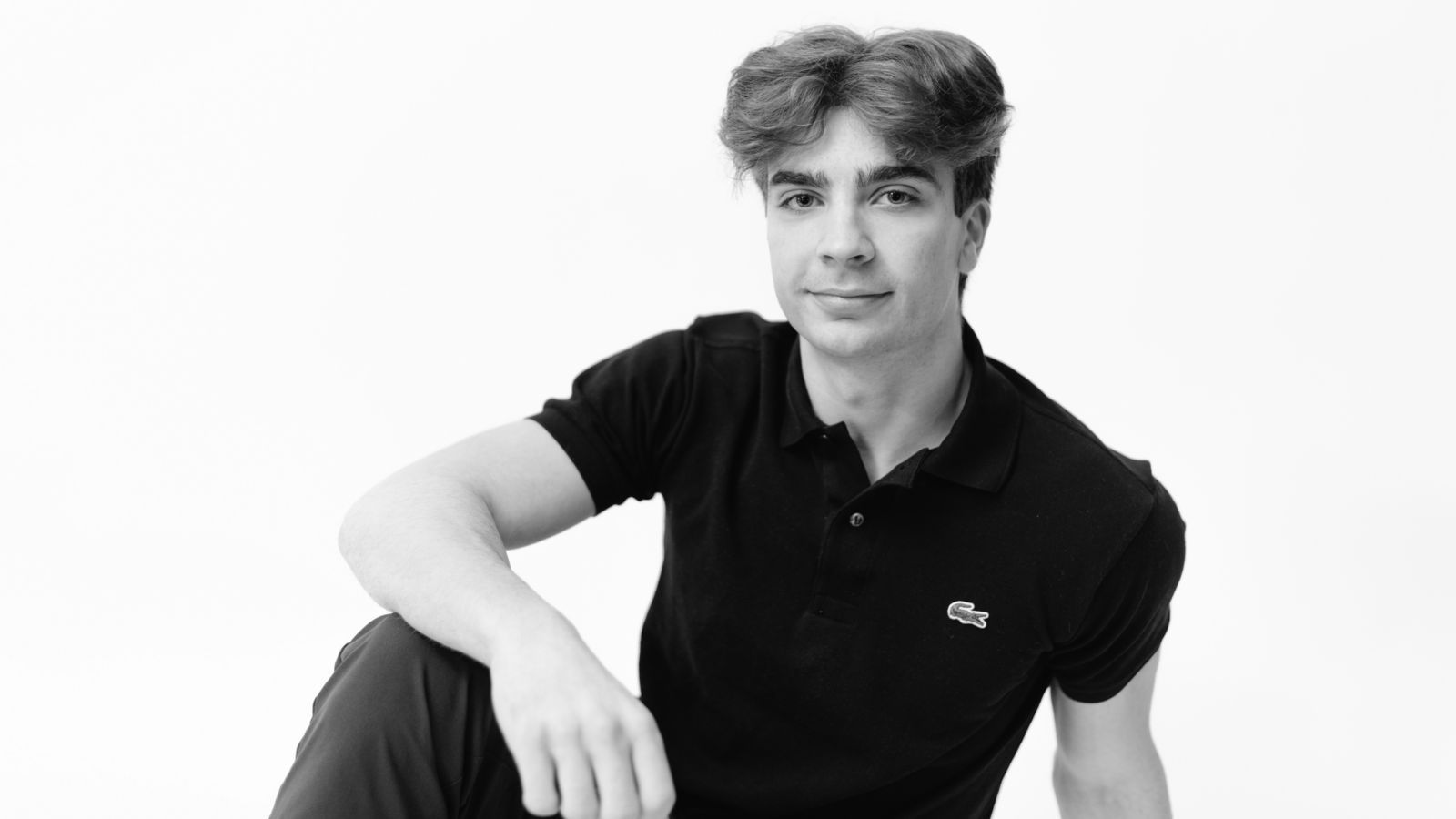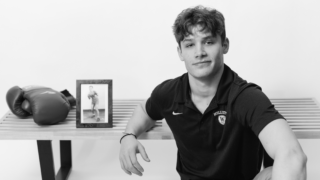The Scholar: Emmanuel Damianakis
The Project: Preserving Languages and Cultures Through Oral History
What I Studied: “I looked into the West African griots, who were people in Africa that were in charge of transferring knowledge down to the future generations, and they do it all orally—nothing is written down. I took interest in why they do that, what makes it so different, and why don’t they do anything like we do with technology and writing. I decided to do my own oral history with my parents and my family. I asked them their experiences with languages at home, just to see if I could find any connections there.”
What I Learned: “I definitely learned a lot about my family and what they went through with languages, since they aren’t all native speakers with English. A lot of them speak French and a lot of them speak Greek as well, so I learned a lot through that. The biggest thing I learned was the connection between that and the West African griot and why oral history is so important. Seeing how oral history connects and ties generations together, and the interview kind of becomes the glue for that.”
The Biggest Challenge: “I think just choosing the clips I wanted to use, because I did seven interviews and they were all over 30 mins long, so I had to condense that into a smaller, 10-minute video. A lot of good information was shared during those interviews, so choosing what I wanted to use for that video [was a challenge].”
Tip for Future Scholars: “I would say keep an open mind, because you go in having an idea of what you are going to do but you don’t know what you’ll find out or discover, Just have an open mind and be ready for anything.”
How interesting was it to watch the MLK Day assembly with Massamba Diop—a West African griot himself—knowing what you had to do for this project? “It showed me what I just did. The griots, not only did they transmit things orally, they also used instruments like that and music. I found it cool to see it in person, to see how they do it.”


